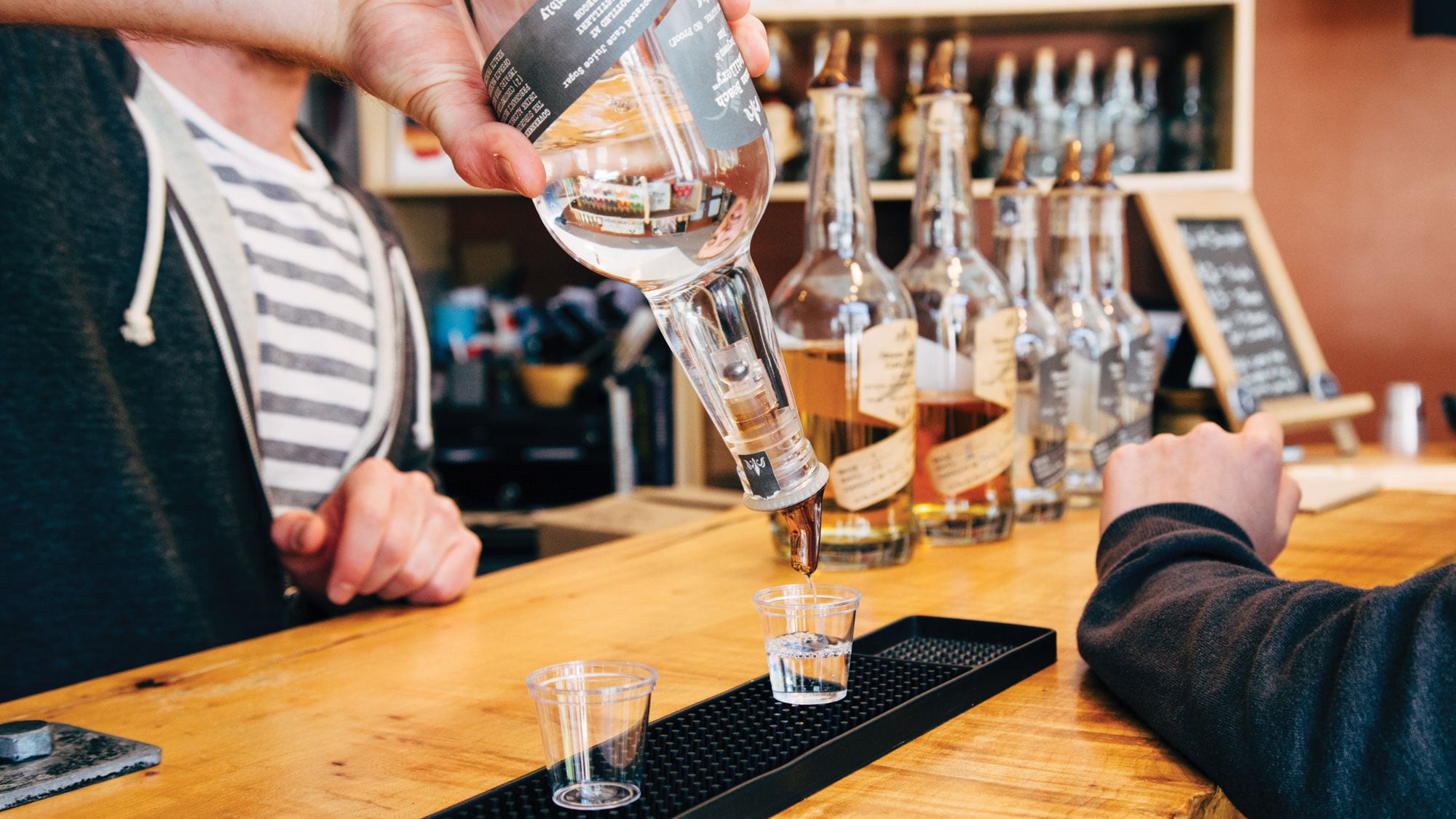These are heady times for the makers of Oregon liquor.
The number of licensed distillers in the state almost doubled from 46 to nearly 100 in four years.
And Oregon distilleries are each about to save as much as $1 million a year from the federal tax overhaul passed last month by Congress.
Now craft distilleries are asking the Oregon Legislature for another tax break—this one allowing most distillers in the state to keep all of the revenue made in tasting rooms.
"Tasting rooms in Oregon are not a profit center," says Brad Irwin, vice president of the Oregon Distillers Guild and owner of Oregon Spirit Distillers in Bend. "They lose money. By allowing us to keep all of the proceeds from the sale, it allows us to continue to employ people and buy more Oregon-grown grain to make more spirits."
The politics of this request have become a power struggle: The state's oldest and largest distillery has dissented. It warns the tax cut, which would benefit its smaller competitors, would also cripple the state's regulatory apparatus.
Hood River Distillers, which makes Pendleton Whisky and HRD Vodka, says the tax break would weaken the Oregon Liquor Control Commission and open the door for large, out-of-state liquor manufacturers to operate unchecked in Oregon.
"We believe this legislation weakens the state system," says Hood River CEO Ronald Dodge. "We didn't start out with a state subsidy, and we have still been able to benefit from Oregon's system. The short-term gains included in this bill do not outweigh the potential serious, long-term, harmful consequences."
Smaller distillers think the state's largest craft distillery is really worried about its competition.
"[The bill] serves to aid small and upcoming businesses, and larger, incumbent distilleries like Hood River Distillers are likely to feel threatened by this," says Christian Krogstad, president of the distillers guild and founder of House Spirits Distillery in Portland. "They don't like anything that increases competition."
Liquor sellers currently pay the OLCC about 30 percent of all retail sales to customers who buy bottles in tasting rooms. (Irwin's distillery sold 5,028 bottles of whiskey in its tasting room last year. He made $148,137 from that business, and forfeited $44,145 of that sum to the OLCC.)
If Senate Bill 1564 passes, distilleries wouldn't pay any fees on the first $500,000 made in a tasting room. That tax break could be worth up to $900,000 a year for the industry—but small distilleries benefit the most.
The money gained by distilleries would come at the expense of the OLCC, the regulatory board that oversees hard liquor sales at state-licensed retailers.
The state's regulatory body has long been credited with keeping small alcohol suppliers alive. The OLCC reserves shelf space for small, local distillers who couldn't otherwise afford the placement that is critical for sales. It also keeps liquor out of grocery stores—which drives people into tasting rooms that introduce them to new products made by smaller companies. So the subsidy distillers are seeking could weaken the forces that allow them to exist.
A formal fiscal impact statement has not yet been produced for the bill, which gets its first hearing Feb. 5. State Sen. Lee Beyer (D-Springfield), the bill's sponsor, could not be reached for comment.
The distillers guild, which is pushing for the subsidy, acknowledges the bill could cost the OLCC its cut of the $3 million in annual sales that occur in tasting rooms each year. But the guild says the impact would be negligible—a fraction of the agency's $1.22 billion annual revenue.
The guild's Irwin says critics' worries about weakening the OLCC are unfounded.
"I think the opposite, in fact," he says. "By allowing a modernization of the system, by relieving the 30 percent tax burden in tasting rooms and allowing some of these small distilleries to see a little bit of revenue in these tasting rooms, it keeps the control model working for everyone."

